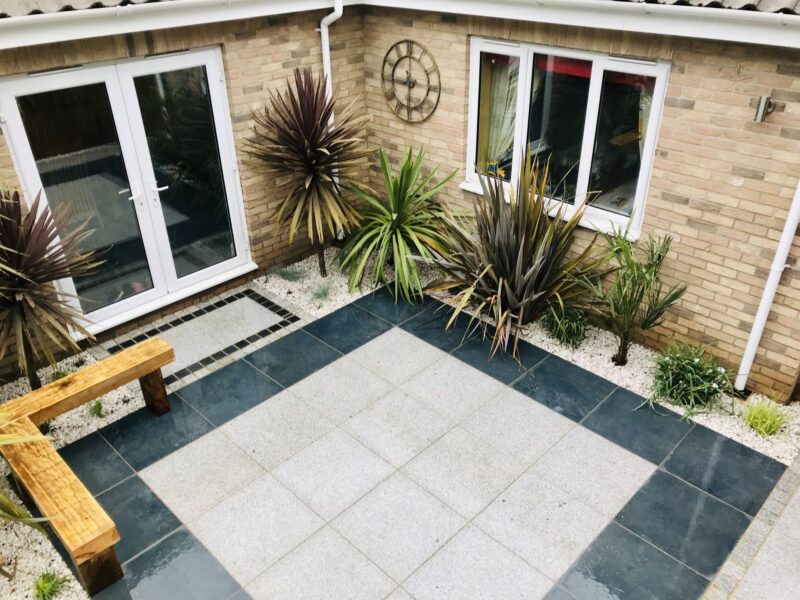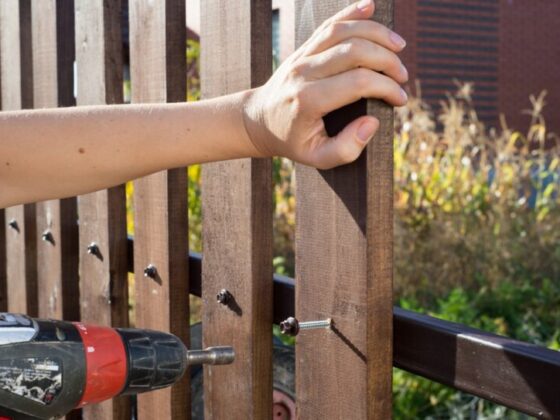Porcelain paving is a beautiful, modern way to add style and sophistication to your home. But one question that many people have is whether or not it is slippery. In this article, we will explore the answer to that question so that you can make an informed decision about whether or not porcelain paving is right for you!
What is Porcelain Paving?
Porcelain paving is a type of paving that is made from porcelain clay. It is a strong and durable material that is resistant to staining and fading. Porcelain paving is available in a wide range of colors and designs. It can be used for both indoor and outdoor applications.
Porcelain paving is slip-resistant and easy to clean. It requires little maintenance and can last for many years. Porcelain paving is an excellent choice for high-traffic areas.
Various Types of Porcelain Paving
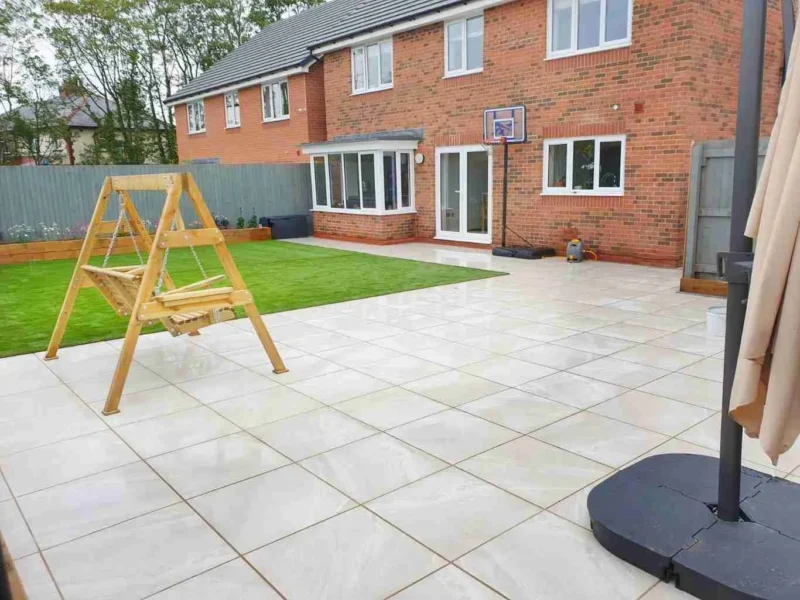
There are various types of porcelain paving available on the market. Some types are more slip-resistant than others. For example, matte finish porcelain tiles have a rougher surface that is less likely to be slippery. If you are concerned about slip resistance, you should ask your supplier about the slip resistance of the type of porcelain paving you are interested in.
Some other types of porcelain paving are made from recycled materials. There are also some that are made from natural stone instead of porcelain. If you want to save money on your paving, you should look into these options.
If you have a particular design in mind, there are also porcelain pavements that can be customized for you. You can get them made with any kind of material, including concrete and glass. These types of pavements can be used in any area where you need a decorative touch or something different than what is already available on the market.
Some porcelain pavements are sealed so they can last longer than others. Sealed pavement will not absorb spills or elements from the outside environment as easily as an unsealed one will. This means that it will cost more to clean and maintain, but it may last longer as well. The choice is up to you whether or not you want to seal your pavement yourself or pay someone else to do it for you.
Pros and Cons of Porcelain Paving
Porcelain paving has a number of advantages and disadvantages.
One of the main advantages of porcelain paving is that it is very tough and durable. It is also very easy to clean and maintain. Porcelain paving is also non-slip, which is an important safety feature.
However, there are some drawbacks to porcelain paving. One of the main disadvantages is that it can be quite slippery when wet. This means that it is not suitable for areas that get a lot of rain or snow. Another disadvantage of porcelain paving is that it can be quite expensive.
Does porcelain paving stain?
Porcelain paving is a type of paving that is made from porcelain clay. It is a popular choice for patios, driveways and pathways. Porcelain paving is quite resistant to staining, but it is not completely stain-proof. If something does manage to stain the surface of the porcelain paving, it is usually possible to remove the stain with some simple cleaning products.
How to Maintain Porcelain Paving?
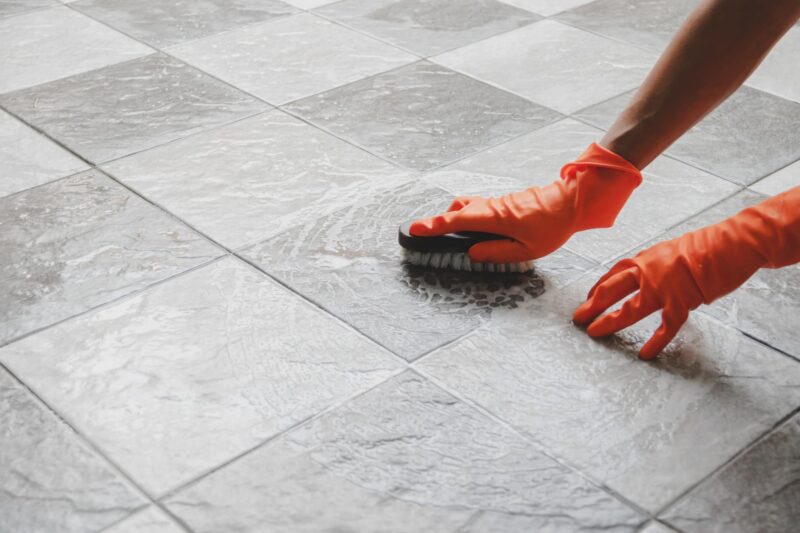
Porcelain paving is a beautiful and durable option for your outdoor space. However, it is important to maintain it properly to keep it looking its best.
Porcelain paving should be cleaned regularly with a mild detergent. You can also use a pressure washer on porcelain paving, but be careful not to damage the surface. For damage free pressure washing, contact your local pressure washing company.
It is also important to maintain the joints between pieces of porcelain paving. The joints can become worn over time and allow water and dirt to seep in. This can cause the porcelain paving to become stained and discolored. To avoid this, it is important to regularly clean the joints and seal them with a jointing compound.
Is Porcelain Paving Slippery?
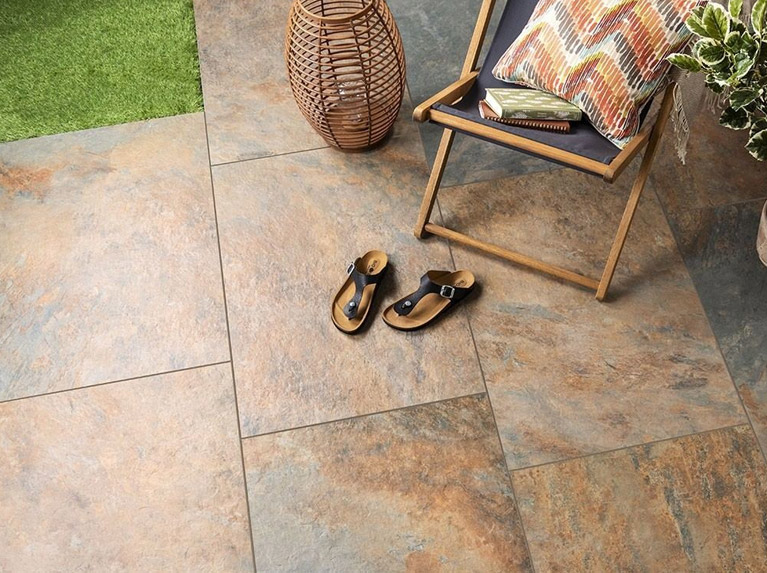
There are a few factors to consider when determining whether or not porcelain paving is slippery.
– The first is the porosity of the material. Porcelain tiles are non-porous, which means they are less likely to absorb water and create a slippery surface.
– The second factor is the finish of the tile. A glossy finish will be more slippery than a matte finish.
– The third factor is the environment where the tile is being used. A tile that is used outdoors in a wet climate will be more slippery than a tile that is used indoors in a dry climate.
Overall, porcelain paving is not as slippery as some other types of paving materials. However, there are a few factors that can make it more slippery. If you are concerned about slip resistance, you should choose a tile with a matte finish and use it in a dry indoor environment.
How to Make Porcelain Paving Less Slippery?
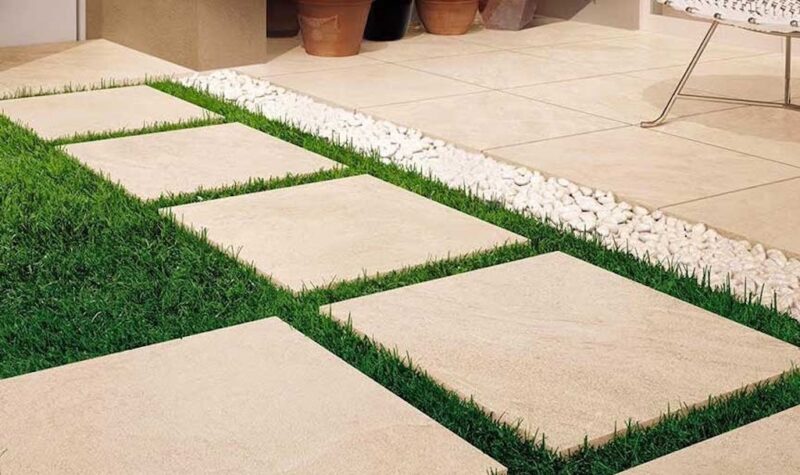
There are a few things that you can do to make porcelain paving less slippery.
– First, you can choose a porcelain paving product that has a textured surface. This will provide more traction and make it less likely for people to slip.
– Second, you can seal your porcelain paving. This will help to create a barrier between the tile and the surface it is being applied to. This will also help to make it less slippery by providing more traction.
– Third, you can apply a non-slip coating to your porcelain paving. This will create an additional layer of protection against slipping. There are many different types of non-slip coatings available on the market, so be sure to choose one that is compatible with your particular type of tile.
Following these tips, you can make your porcelain paving less slippery and safer for everyone who uses it.
Conclusion
Porcelain paving is an excellent choice for those who are looking for a durable and slip-resistant option. While it is not completely slip-proof, it is much more resistant than other materials such as concrete or stone. Porcelain paving is also very easy to clean and maintain, making it a low-maintenance option for busy households. If you’re looking for a paving material that will stand the test of time, porcelain is a great choice.

